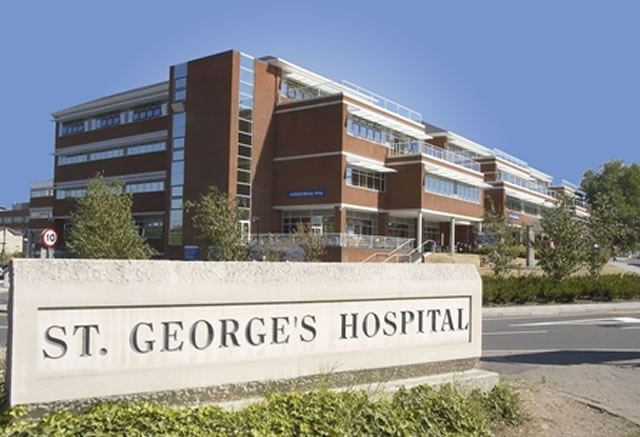Locally Based Research Lab to Focus Totally on Covid-19
St George's, University of London will collect samples from hospital patients

St George’s, University of London, which is partnered with St George’s Hospital in Tooting, will now focus on working on clinical trials and tests for the coronavirus.
Other research on the site has been paused so researchers can work to understand the biology of the virus and the human body’s response to it.
Dr Tim Planche, who is leading the project alongside Professor Sanjeev Krishna, said: “Without testing and samples, you’re fighting coronavirus blind.”
The first trial will involve collecting clinical samples from Covid-19-infected patients.
These samples will first be used to evaluate a quick antibody test to tell people if they have coronavirus or not.
The clinical samples collected from patients at St George’s Hospital as part of the trial will also be used to carry out further investigations into the biology of coronavirus and how it can be treated.
Dr Tim Planche said: “This study will enable the work of a taskforce at St George’s to tackle the disease, by giving all parts of the university quick access to samples in a national time of need.
“We’ve got one shot at this, and by opening up our samples to be looked at by many people to evaluate the immune response, virus clearance and more, we can have the greatest impact.”
St George’s University is one of a limited number of universities with laboratories designed to contain harmful pathogens such as COVID-19.
The test has received funding from the UK Department for International Development and The Wellcome Trust and is being developed by a company called Mologic.
The university is also involved in national and international trials for potential treatments for Covid-19, and understanding transmission in pregnant women and babies, as well as influencing policy on infection control and helping to develop guidance for clinicians.
Trials of new treatments have already started and patients are being recruited by university and trust staff.
Deputy principal for research at St George’s, University of London, Professor Jon Friedland, said: “The whole university is mobilising clinical, diagnostic and underlying scientific research so that we can help the effort against COVID-19. We want to send out the message that St George’s is very much open to research on COVID-19, and we are welcoming collaborations with partners across industry and academia.
“As a specialist health university with a major interest in infection and a strong history of successful translational research, we can see the impact COVID-19 is having on a national and global scale, so have taken the decision to switch our current research on site to focus on tackling this disease.
“Our aim is to improve treatments and outcomes for patients, with our experts developing better and faster diagnostic tests, evaluating drugs to treat the disease, and working towards understanding both transmission of the virus and how the human immune system responds to it, so vaccines can be developed.”
Sian Bayley - Local Democracy Reporter
April 3, 2020